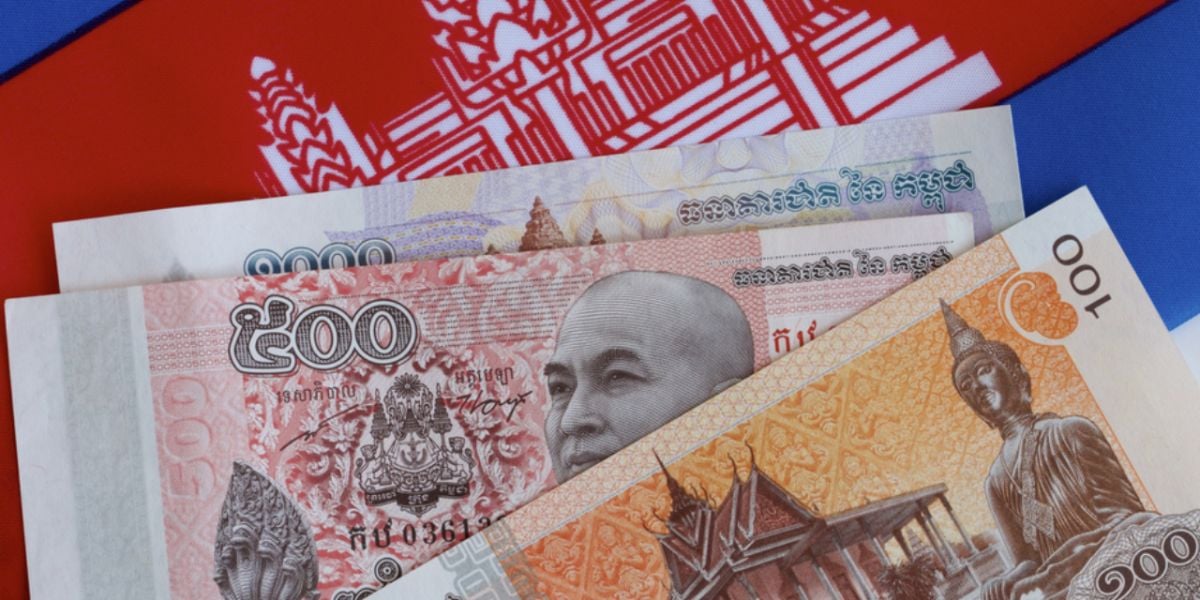
As a foreigner living in Cambodia, opening a bank account is relatively straightforward and can save you quite a few hard-earned dollars in the long-term.
ATM machines can be found in all big cities in Cambodia, but most charge up to US$5 per transaction when accepting international cards. It is, therefore, a good idea to open a bank account when you're living in Cambodia, even if you wish to maintain a bank account in your home country too.
ATM machines dispense both US dollars and Cambodian riel, but you will only be able to withdraw US dollars if you use a foreign ATM card. Do also be aware that they tend to dispense US$50 and US$100 notes, which can be frustrating if you need to pay for something small straight away, as most small businesses or locals will not have change for bills this large. Consequently, it is a good idea to try to plan your purchases so that you can break any large bills in a hotel, a large grocery store, or a high-end restaurant.
It's good to also be aware that if you're heading out to the Cambodian countryside, the main currency used is Cambodian riel, and you'll likely only be able to spend US dollars in very small denominations. Therefore, plan ahead and be sure to have US$1 and US$5 notes to hand, and make sure that these are in good condition as they may well be rejected if in poor condition.
How to open an account
It is relatively simple to open a bank account in Cambodia, as most banks require a copy of your passport and your business visa, as well as a letter of employment written by your employer. A copy of your lease is also often required, but this may be overlooked. Banks in Cambodia ultimately need proof that you plan to stay in the country for a substantial period and will be receiving an income from a veritable source.
Where to open an account
There are many banks in Cambodia ' ACLEDA, ANZ Royal, Canadia, Cambodia Mekong, Foreign Trade Bank of Cambodia, Union Commercial and Vattanac, to name a few. And where you choose to bank may depend on varying minimum deposits, charges, services, or the convenience of branches and ATMs near where you live.
One of the most popular banking choices in the https://www.expat.community is ANZ Royal Bank, which has branches in all main cities, as well as over 100 ATMs across the country. ANZ also offers internet banking services, as well as international transfers at reasonable rates.
To open a Convenience Plus account, you will need to deposit a minimum of US$500, and you can expect a monthly charge of just US$1 if you maintain this balance, or US$3 if you go under this initial amount.
ACLEDA Bank is another popular choice, as it has more than 200 branches across the country. If you bank with them, you can expect to be able to pay your bills online to the utility companies and some mobile phone carriers, and they offer internet banking. To open a current account at ACLEDA, you will need to deposit a minimum of US$1,000 and keep at least US$500 in the account at all times.
Alternatively, you could choose to open an account with Canadia Bank, which is another expat favourite. Canadia Bank does not ask for an employment contract, just a passport with at least 4 months valid extension of stay, a lease contract, and a deposit of only $10.
Useful links:
We do our best to provide accurate and up to date information. However, if you have noticed any inaccuracies in this article, please let us know in the comments section below.











